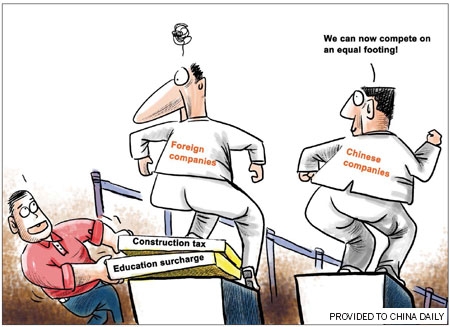Beijing calls for emergency Six-Party Talks
Updated: 2010-12-08 07:05
By Qin Jize (China Daily)
BEIJING - China on Tuesday continued to insist that dialogue and negotiations are the only correct ways to address current tensions and realize a long-lasting peace on the Korean Peninsula.
Foreign Ministry spokesman Jiang Yu said growing tensions have further proven the urgency of a resumption of the Six-Party Talks, which group China, the Democratic People's Republic of Korea (DPRK), Republic of Korea (ROK), Russia, Japan and the United States.
"We've been calling for peace and dialogue, and we believe that as long as all the parties sit down to talk, we will eventually find the solution," he said.
Jiang repeated that peaceful resolutions to tensions on the Korean Peninsula have consistently been China's basic point of consideration.
While the US, the ROK and Japan have expressed their reservations to a proposed emergency meeting of the Six-Party Talks by China, the three countries held a meeting on Monday between chief diplomats to coordinate their positions on Korean Peninsula issues.
US Secretary of State Hillary Clinton added that China "has a special role to play" in terms of its influence over the behavior of the DPRK.
In a telephone conversation with his US counterpart Barack Obama, President Hu Jintao on Monday called for calm and rational responses from all sides to prevent a deterioration of the fragile security situation on the Korean Peninsula.
Huang Youfu, director of the Institute of Korean Studies at the Minzu University of China, noted that the three countries' rejection of China's proposal was "not wise".
"The trilateral talks cannot resolve any concrete problems," he said. "It makes Pyongyang hold the view that the US and its two Asian friends are forming a new alliance to confront it.
"Such (a) Cold War mentality will not solve anything."
Huang added that China would not protect any side. "Even small details like what to - and how to - negotiate should be negotiated among all the relevant parities," he said.
Li Qinggong, the deputy secretary-general of the China Council for National Security Policy Studies, said the statement released by the three foreign ministers "neither eased the tensions on the Korean Peninsula - nor dispelled the doubts of the US and the ROK.
"However", Li added, "it has further irritated the DPRK".
He said the Washington meeting has hampered Beijing's diplomatic efforts and broken its plan for further coordination among the relevant sides.
Li said it is unlikely that a regional war would happen in the near future. But, Li added, without the joint efforts of the six parties, the situation will likely get worse.
Yu Yang and Yang Jing contributed to this story.
Paper's Digest

Xi'an – more than just clay soldiers
There is more to the ancient capital of Xi'an than just clay soldiers.
Preview of the coming issue
Showing face: Looks can kill
China fueling European recovery
Specials

The naked truth about nude art
A growing number of Chinese people are now choosing to go nude for posterity, particularly young women and new brides.

"China lover"
Lord Mandelson says he has been called a "China lover" as a term of abuse back in Europe.

Firms unfazed by new taxes
Foreign investments into China are not expected to be adversely affected by the cancellation of some of the country's preferential tax policies.






